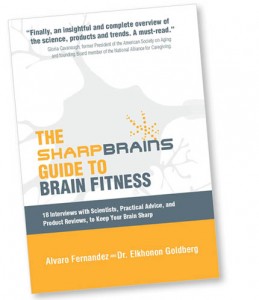http://www.washingtonpost.com/wp-dyn/content/article/2010/12/23/AR2010122304771.html
Sealed with a kiss - and neuroscience
| |
By Sheril Kirshenbaum
Sunday, December 26, 2010 A kiss at midnight to ring in the new year. That's what Friday night should bring, right?
It's tradition, compulsion, festive duty. An excuse to make a bold move with someone new, a reason to be anxious about finding a date or a chance to celebrate with a longtime love. And there's pressure to get it right.
There ia a scientific basis for those high stakes. Whom you kiss can set the course for a good year. Really. It's not magic - it's chemistry and neuroscience. And no matter how painstakingly you set the scene, in the end chemistry trumps mood music. From a scientific perspective, a kiss is a natural litmus test to help us identify a good partner. Start the first moments of 2011 with the right one, and you're beginning the year on a natural high.
Just what is it that makes kissing such a powerful and significant part of the human experience?
A kiss influences important chemicals in our brains and bodies responsible for promoting social bonding. According to the work of Rutgers University anthropologist Helen Fisher, kissing evolved to facilitate three essential needs: sex drive, romantic love and attachment. Each is involved in promoting reproduction, and kissing bolsters all three. In that view, locking lips helps us find partners, commit to one person and keep couples together long enough to have a child.
Humans have evolved to use a number of signals - including taste, smell and possibly silent chemical messengers called pheromones - to help us figure out whether someone is a suitable partner and a good person to reproduce with. A kiss means getting close to someone - close enough to suss out important clues about chemistry and genetics. At this range, our noses can detect valuable information about another person's health and perhaps even his or her DNA. Biologist Claus Wedekind has found, for instance, that women are most attracted to the scents of men with a different set of genetic coding for immunity than their own. This is probably because when there is greater genetic diversity between parents in this area, their children will have more versatile immune systems. The assessment occurs at a subconscious level, yet a bad initial kiss may be a result of a genetically star-crossed pair. (Which is something else to worry about during a new encounter: "What if the girl of my dreams rejects my genes?")
During a passionate kiss, our blood vessels dilate and our brains receive more oxygen than normal. Our breathing can become irregular and deepen. Our cheeks flush, our pulse quickens, and our pupils dilate (which may be one reason that so many of us close our eyes). A long, open-mouthed exchange allows us to sample another person's taste, which can reveal clues about his or her health and fertility. Our tongues - covered with little bumps called papillae that feature our 9,000 to 10,000 taste buds - are ideally designed to gather such information.
When we kiss, all five of our senses are busy transmitting messages to our brain. Billions of nerve connections are firing away and distributing signals around our bodies. Eventually, these signals reach the somatosenory cortex, the region of the brain that processes feelings of touch, temperature, pain and more.
Our brains respond by producing chemicals that help us decide our next move. A good kiss can work like a drug, influencing the hormones and neurotransmitters coursing through our bodies. It can send two people on a natural high by stimulating pleasure centers in the brain. The feeling has much to do with a neurotransmitter called dopamine, which is responsible for craving and desire and associated with "falling in love." When it's really pumping, dopamine spurs us to take things further.
 Kissing also promotes the "love hormone," oxytocin, which works to maintain a special connection between two people; kissing can keep love alive when a relationship has survived decades, long after novelty has waned. In other words, kissing influences the uptake of hormones and neurotransmitters beyond our conscious control, and these signals play a huge part in how we feel about each other.
Kissing also promotes the "love hormone," oxytocin, which works to maintain a special connection between two people; kissing can keep love alive when a relationship has survived decades, long after novelty has waned. In other words, kissing influences the uptake of hormones and neurotransmitters beyond our conscious control, and these signals play a huge part in how we feel about each other.
A bad kiss, alternatively, can lead to chemical chaos. An uncomfortable environment or a poor match can stimulate the "stress hormone" cortisol, discouraging both partners from continuing. Evolutionary psychologist Gordon Gallup of the University at Albany reports that 59 percent of men and 66 percent of women say they have ended a budding relationship because of a kiss that did not go well.
Whether it's magic or a disaster, there is one thing that a first kiss is very likely to be: unforgettable. Psychologist John Bohannon of Butler University and his research team surveyed 500 people to compare their recollections of a variety of significant life experiences - such as a first kiss and the loss of virginity - to find out what made the most dramatic impression. A first kiss trumped everything: It was the most vivid memory in the minds of those being surveyed.
In fact, when asked about specifics, Bohannon reported that most people could recall up to 90 percent of the details of the moment - where they were, who made the first move - no matter how long ago the exchange took place.
Which is not to say that sharing a New Year's Eve kiss with someone new will necessarily be a memory worth savoring for a lifetime. If midnight's buss is a bust, remember that you can't control everything about the situation and that your body (or your partner's) may be saying something very important: Look elsewhere. If the chemistry is wrong, there's not much you can do. But take heart. Valentine's Day is less than two months away.
Sheril Kirshenbaum is a research scientist at the University of Texas and the author of the new book "The Science of Kissing."
There ia a scientific basis for those high stakes. Whom you kiss can set the course for a good year. Really. It's not magic - it's chemistry and neuroscience. And no matter how painstakingly you set the scene, in the end chemistry trumps mood music. From a scientific perspective, a kiss is a natural litmus test to help us identify a good partner. Start the first moments of 2011 with the right one, and you're beginning the year on a natural high.
Just what is it that makes kissing such a powerful and significant part of the human experience?
A kiss influences important chemicals in our brains and bodies responsible for promoting social bonding. According to the work of Rutgers University anthropologist Helen Fisher, kissing evolved to facilitate three essential needs: sex drive, romantic love and attachment. Each is involved in promoting reproduction, and kissing bolsters all three. In that view, locking lips helps us find partners, commit to one person and keep couples together long enough to have a child.
Humans have evolved to use a number of signals - including taste, smell and possibly silent chemical messengers called pheromones - to help us figure out whether someone is a suitable partner and a good person to reproduce with. A kiss means getting close to someone - close enough to suss out important clues about chemistry and genetics. At this range, our noses can detect valuable information about another person's health and perhaps even his or her DNA. Biologist Claus Wedekind has found, for instance, that women are most attracted to the scents of men with a different set of genetic coding for immunity than their own. This is probably because when there is greater genetic diversity between parents in this area, their children will have more versatile immune systems. The assessment occurs at a subconscious level, yet a bad initial kiss may be a result of a genetically star-crossed pair. (Which is something else to worry about during a new encounter: "What if the girl of my dreams rejects my genes?")
During a passionate kiss, our blood vessels dilate and our brains receive more oxygen than normal. Our breathing can become irregular and deepen. Our cheeks flush, our pulse quickens, and our pupils dilate (which may be one reason that so many of us close our eyes). A long, open-mouthed exchange allows us to sample another person's taste, which can reveal clues about his or her health and fertility. Our tongues - covered with little bumps called papillae that feature our 9,000 to 10,000 taste buds - are ideally designed to gather such information.
When we kiss, all five of our senses are busy transmitting messages to our brain. Billions of nerve connections are firing away and distributing signals around our bodies. Eventually, these signals reach the somatosenory cortex, the region of the brain that processes feelings of touch, temperature, pain and more.
Our brains respond by producing chemicals that help us decide our next move. A good kiss can work like a drug, influencing the hormones and neurotransmitters coursing through our bodies. It can send two people on a natural high by stimulating pleasure centers in the brain. The feeling has much to do with a neurotransmitter called dopamine, which is responsible for craving and desire and associated with "falling in love." When it's really pumping, dopamine spurs us to take things further.
A bad kiss, alternatively, can lead to chemical chaos. An uncomfortable environment or a poor match can stimulate the "stress hormone" cortisol, discouraging both partners from continuing. Evolutionary psychologist Gordon Gallup of the University at Albany reports that 59 percent of men and 66 percent of women say they have ended a budding relationship because of a kiss that did not go well.
Whether it's magic or a disaster, there is one thing that a first kiss is very likely to be: unforgettable. Psychologist John Bohannon of Butler University and his research team surveyed 500 people to compare their recollections of a variety of significant life experiences - such as a first kiss and the loss of virginity - to find out what made the most dramatic impression. A first kiss trumped everything: It was the most vivid memory in the minds of those being surveyed.
In fact, when asked about specifics, Bohannon reported that most people could recall up to 90 percent of the details of the moment - where they were, who made the first move - no matter how long ago the exchange took place.
Which is not to say that sharing a New Year's Eve kiss with someone new will necessarily be a memory worth savoring for a lifetime. If midnight's buss is a bust, remember that you can't control everything about the situation and that your body (or your partner's) may be saying something very important: Look elsewhere. If the chemistry is wrong, there's not much you can do. But take heart. Valentine's Day is less than two months away.
Sheril Kirshenbaum is a research scientist at the University of Texas and the author of the new book "The Science of Kissing."










